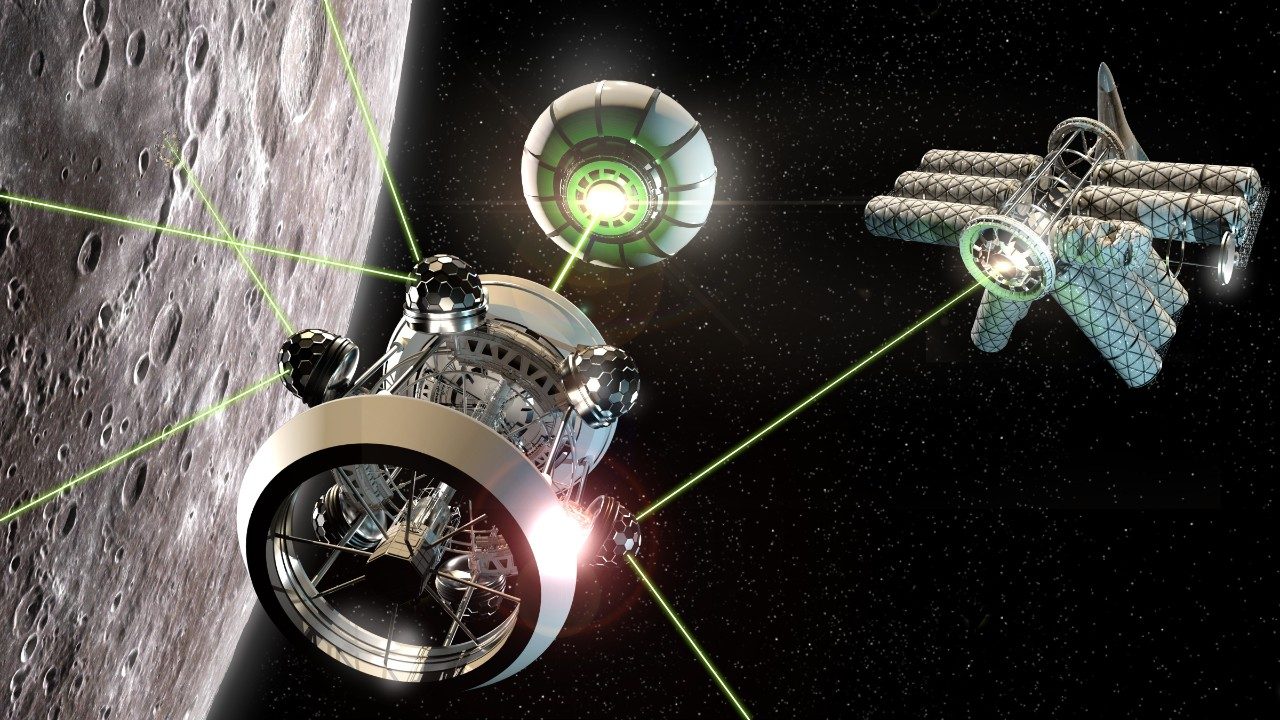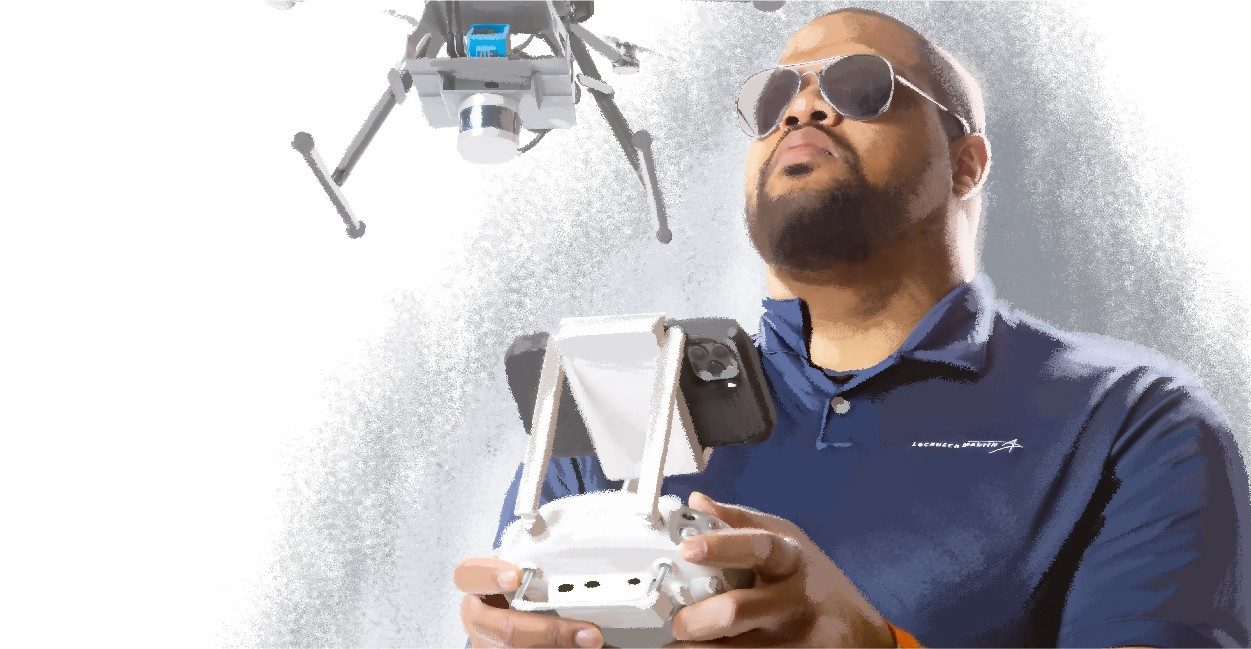Intelligent Life: How AI is Advancing the Future of Space
Thinking about travelling to another country - or simply to the grocery store?
How about taking a getaway to the Moon?
That extraordinary vision for the future of space could become a reality, according to Lockheed Martin Associate Fellow, Dr. Bennie Lewis.
“Space exploration and travel will be like air travel is now. Space travel will be multi-functional, addressing both consumer and military needs - and will even include vacation travel,” Bennie says.
By bridging the gaps between humankind’s perception and knowledge, advancements in Artificial Intelligence (AI), drawing from data provided by Machine Learning (ML) and Deep Learning, is paving the way to this future and the development of a space economy with vibrant colonies of humans who live “off” earth.
“Once Space Force, the lunar base and ecosystem are established, our ability to not just explore, but to also “settle” space, will grow.” Bennie says.
Embracing Risk to Advancing Knowledge and Space-Based Capabilities
By creating and integrating critical hardware, developing innovations, solutions and educational resources, and advancing funding and research, Lockheed Martin is leading the way in AI development to help determine what the future of space looks like.
It begins, says Bennie, with addressing the data overload that comes with the explosion of humankind’s presence in space.
“As more space objects – more satellites, more payloads - get into space, a lot of the common, deterministic-based algorithms don’t work anymore. They aren’t as high-percent in accuracy as they once were. By leveraging AI, we can bridge that gap,” says Bennie.
It isn’t easy, Bennie adds. “Baby steps,” he emphasizes. “AI still has a long way to go. It’s still growing, still in its baby form. You have to trust a little bit of it first.”
“Trust” means embracing risk - thoughtfully and strategically. “From everything from maneuvering to object and threat detection, we are architecting a way that keeps the legacy and current software so we minimize risk for our customers, while also showing them how this new generation of AI can ensure Mission Success for them – now and in the future."
From Space Exploration to Defense – AI Is a Game-Changer
AI, Bennie stresses, may be a game-changer, but it doesn’t work alone.
It relies on ever-evolving processing power, Machine Learning, which adapts itself based upon other software-based applications or human input, and Deep Learning, which imitates the way humans gain certain types of knowledge, and more advanced data processing hardware.
AI draws from them all, integrating the data they provide to answer critical questions about what is happening in space and providing more accurate, rapid, predictive data-driven approaches to developing everything from human space exploration spaceships to space-based defense systems.
This includes providing more rapid classification and identification of objects, anomaly detection, and automatic target recognition.
“When you are getting data to the ground and sending back up – you may have missed the moment to address a threat. When you enable AI on a satellite or payload, you get object detection in real time, running on high performance processors.”
“We’re leveraging these hardware and AI innovations to evolve critical methods and abilities – from updating AI models in space to advancing object detection and understanding threat detection - and strategically inserting them into our customer and program needs,” Bennie says.

Knowing the Difference Between a Star – and a Satellite
What is the future “Real-Space” impact? Here’s one scenario:
You’re a space-tourist, a worker living in a lunar colony, or a warrior on a distant planet - and you see a bright object approaching you.
Arriving supply spacecraft? Approaching threat? Your scheduled transport from the Moon to Mars? You want to know what you are looking at and think to yourself something like: “Is that a star, or a satellite?”
The answer could guide split-second decisions on how you react – from welcoming a supply ship, to jumping on a space shuttle, to warding off a mortal threat.
But, whatever your role, you need help organizing and integrating the information quickly and coherently to quickly make informed, accurate decisions.
The AI being developed now by Lockheed Martin will integrate the massive amount of data, allowing you to rapidly assess what you are seeing and make critical split-second decisions, so you can successfully engage in everyday activities – from stocking up on supplies, travelling to another planet, or taking immediate steps to protect yourself from threat.
Workforce of the Future
That’s not all.
“Processing power,” Bennie says, “…has finally caught up to support neural networks, which provides even more opportunities. Looking at all of the technology that is out there now, from hardware to 4G to 5G – we are determining how we leverage that for our domain.”
It’s not just technology that is rapidly advancing. Humankind is too.
That means, Bennie says, that the workforce will evolve to include “A new breed of engineers and researchers. The ‘Internet of Things’ (IoT) is everywhere. The world itself - and culture – is changing and transforming.”
So is space.





